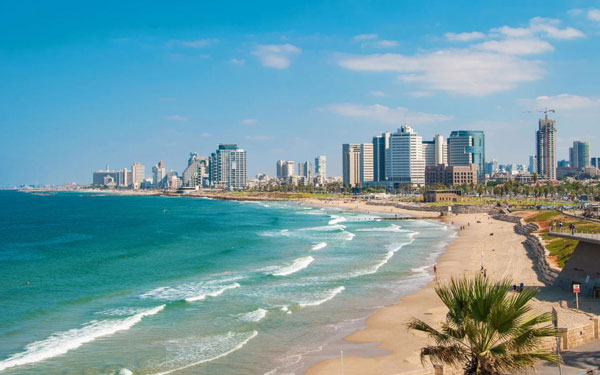
(Image source: www.telegraph.co.uk)
The modern atmosphere can be felt in every corner with impressive collections of modern art and the showcasing of alternative contemporary artists acting as testament to the city’s modern outlook.
And, as expected of any urban city, the entertainment options are endless. Travelers can spend the day relaxing on the beach, admiring the city’s unique architecture, dining at one of many first class restaurants, or sampling the wild nightlife Tel Aviv is renowned for.
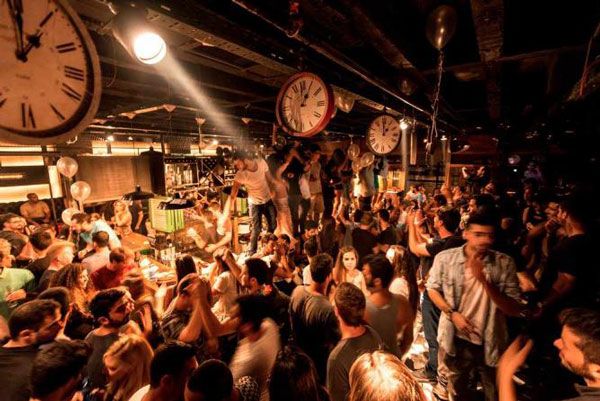
(Image source: www.theculturetrip.com)
It’s no wonder Tel Aviv has won a series of accolades in recent years including; the world’s smartest city, one of the world’s top 10 green cities, and one of the top three startup ecosystems.
Here are just a few of the many things design and food lovers will enjoy in Tel Aviv:
Bauhaus Architecture
Tel Aviv is home to one of the most impressive and well-preserved collections of Bauhaus style architecture. Between 1920-1940, over 4,000 Bauhaus buildings were constructed in Tel Aviv by German-Jewish architects fleeing the Nazis.
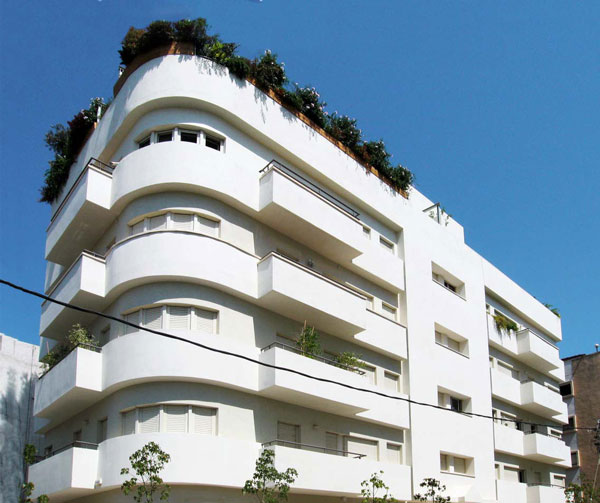
(Image source: www.modernismus.wordpress.com)
The Bauhaus structures feature elements that are characteristic of Modernism, including undecorated surfaces, flat roofs, ribbon windows, and outdoor living spaces. However, in contrast to Modernism, the school of Bauhaus follows stricter rules of visual balance, volume expression and non-embellishment.
Dubbed a UNESCO World Heritage Site, the White City is protected as “an outstanding example of new town planning and architecture in the early 20th century”.
In 2000, the Bauhaus Center Tel Aviv was founded to increase awareness of the architectural style and encourage preservation. You can browse their library, view their gallery exhibitions, or partake in one of many architectural tours, where you’ll see a variety of Bauhaus structures still standing.
One such structure is the Bruno House on 3 Strauss Street. The building was designed by Ze’ev Haller in 1933.
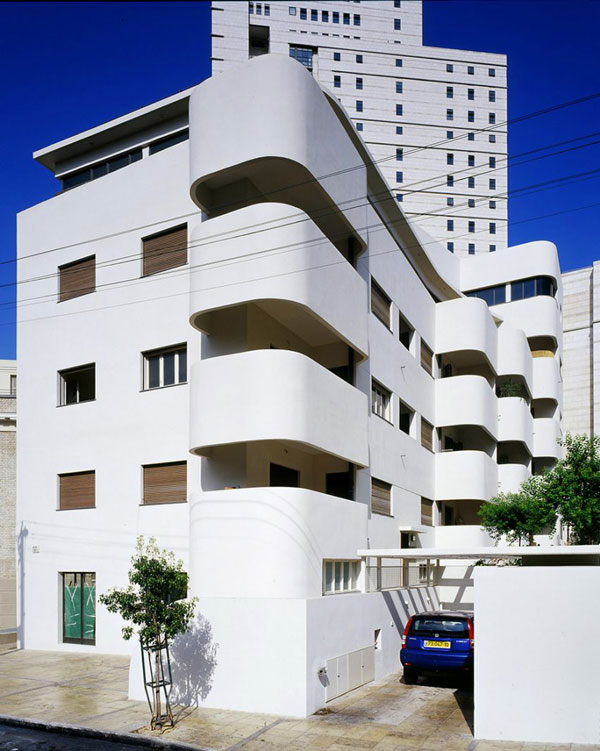
(Image Source: Amit Geron)
Originally designed as a 3-story residential building, the design focuses on modernist elements such as emphasizing balconies and a unique continuous curved line. Later, Bar Orian architects preserved and extended the building by adding two additional floors, and renovating surrounding buildings to create an open public square.
Some of the city’s modern architects have kept the Bauhaus theme alive even today. Richard Meier & Partners designed the 2017 Rothschild Tower with Bauhaus-inspired elements.
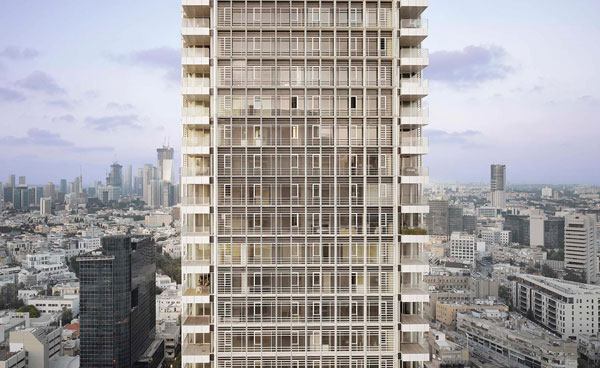
(Image source: www.wallpaper.com)
The residential tower is located on famed Rothschild Boulevard and is in close proximity of other recent tech-tower boom buildings such as the Sarona Tower and the iconic Azrieli center.
Yet another picturesque building in Tel Aviv is the luxury boutique hotel, The Norman. The Norman’s buildings are nestled between historic Bauhaus architecture but are themselves two classic buildings, beautifully restored to their historic elegance.
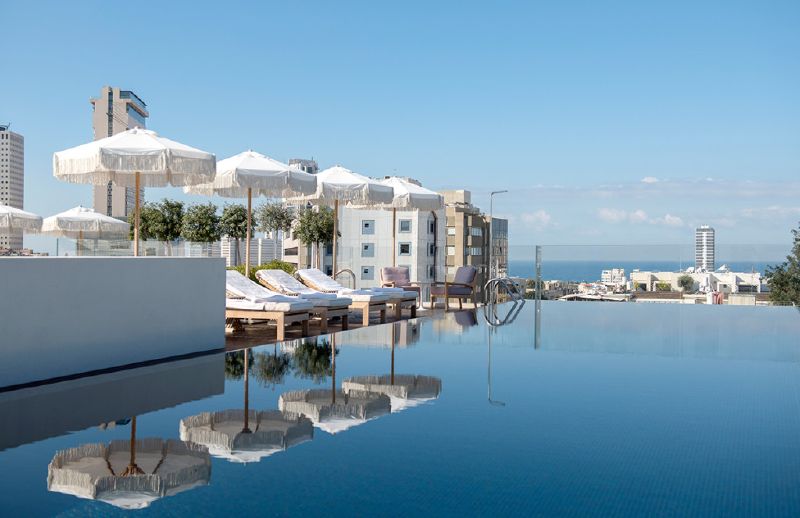
(Image source: www.TheNorman.com)
The first building on No. 25 Nachmani Street is a grand Modernist building with clean lines, and 1920s architecture inspired wooden shutters. The second building on No. 23 Nachmani Street has more of an eclectic style, boasting Renaissance influences and oriental accent pieces.
Food Scene
No mention of Tel Aviv is complete without acknowledging the lively food culture that offers visitors a plethora of delicious restaurants, bars, whole-in-the-walls, and cafes with amazing food and drinks to choose from.
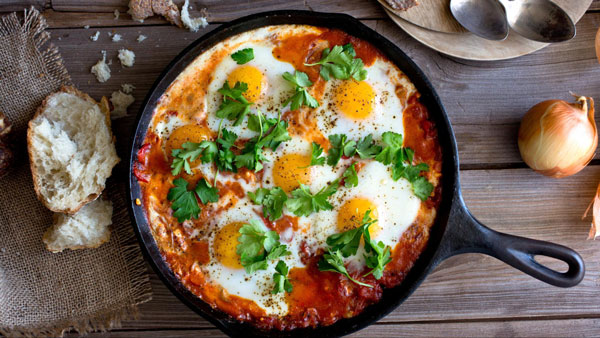
(Image source: www.igoogledisrael.com)
Although whether or not “Israeli food” as a genre exists is up for debate, what’s undoubted is the blend of different food cultures that are represented in Israeli cuisine. Due to the country being a melting pot for many immigrants, Israeli food is comprised of dishes from Moroccan, Yemenite, Palestinian, European, and many other authentic kitchens.
Today, young Israeli chefs are creating fusion dining experiences that pull from a wide spectrum of culinary traditions. Nowhere is that as evident as it is at OCD, one of the most unique dining experiences in Tel Aviv.
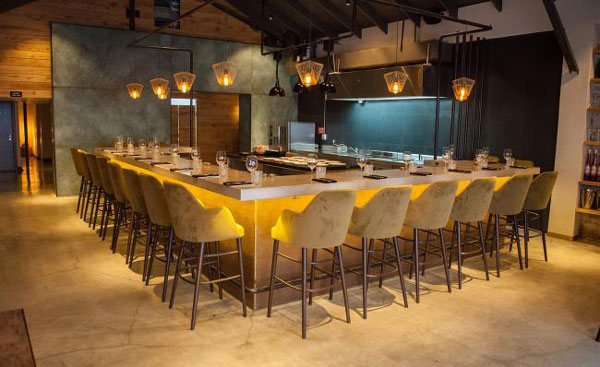
(Image source: Haim Yosef)
The name of the restaurant comes from young Israeli chef, Raz Rahav’s obsessive compulsive habits when it comes to complex, precise cooking and detailed plating. When dining at OCD, you’ll find no set menu. Instead, guests are encouraged to notify the restaurant upon reservation of any dietary restrictions they may have. The chef then constructs a one-of-a-kind nine course menu based on fresh local ingredients.
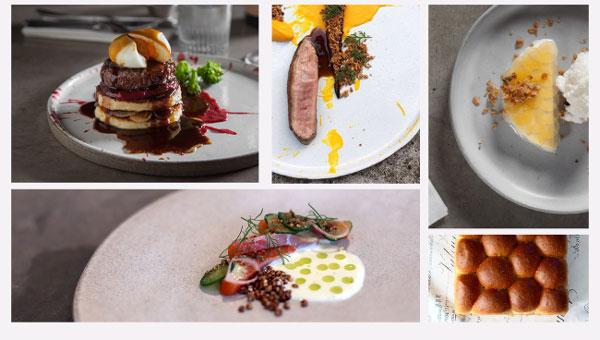
(Image source: Haim Yosef)
However, the menu is not the only unique element of OCD. It’s the experience as a whole. Rahav worked with local architecture firm AKD Studio, to turn the former steel engraving plan in Jaffa into an inviting space of raw concrete, wood, glass and white walls. There is an open concept kitchen which was built to encourage diners to get out of their seats during the meal and observe the action. This way guests can ask questions, take pictures, and take a closer look at how the chefs prepare each dish—just like you might do at a friend’s dinner party.
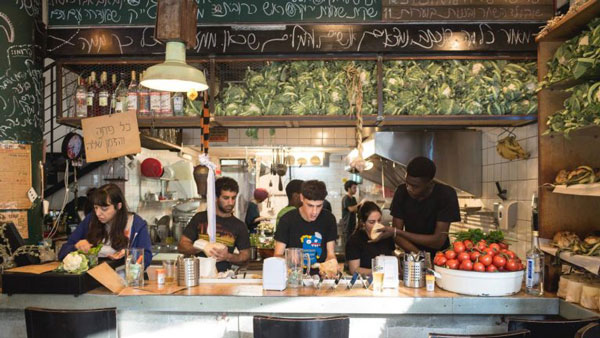
(Image source: Miznon Tel Aviv Facebook)
Another noteworthy chef transforming the Tel Aviv food scene is Eyal Shani. Shani’s cooking style is simple and delicious, putting the spotlight on fresh ingredients and pulling inspiration from the modern Israeli lifestyle. This is most evident at his restaurant Miznon, where he formulates the perfect combination of ingredients to happily stuff into a pita.
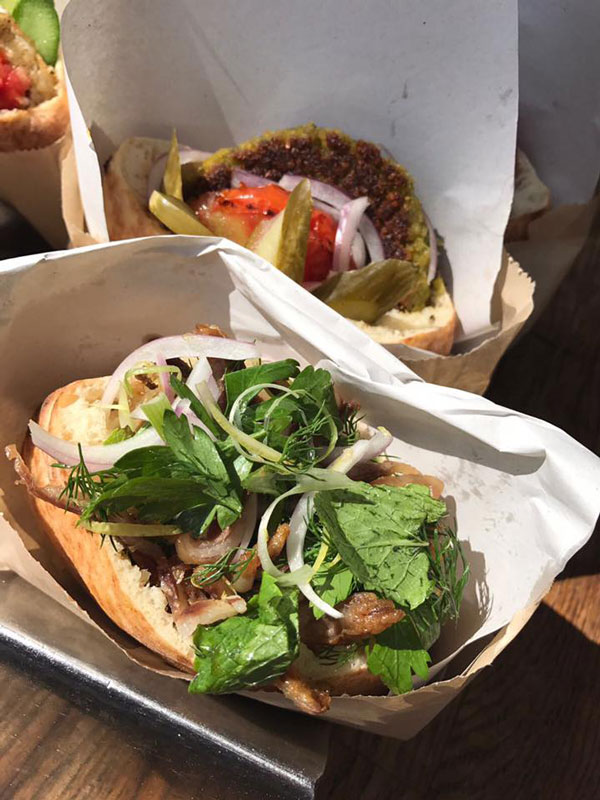
(Image source: Miznon Tel Aviv Facebook)
The pita is an icon of Israeli street food and Eyal Shani takes it to a whole new level. You can enjoy his pitas alongside a perfectly roasted cauliflower, in a loud and lively atmosphere, at the most prime locations in Tel Aviv.
However, his success doesn’t stop there. Shani has taken his Miznon empire outside Israel and opened locations in Paris, Vienna, Melbourne and most recently, New York City.
